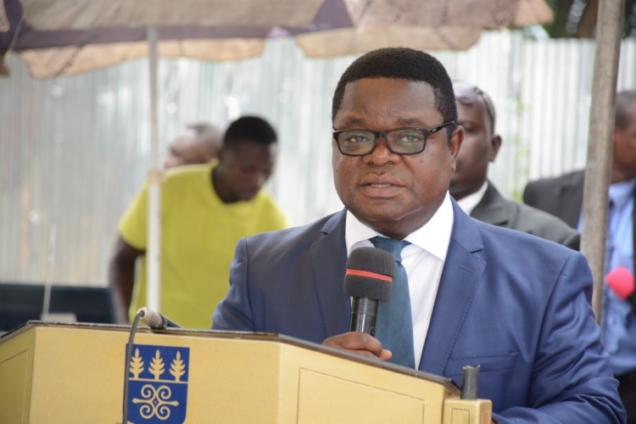The International Monetary Fund’s (IMF) classification of Ghana as a Low-income economy is a narrow way of defining a country’s economic status, Professor Peter Quartey has said.
Head of Economics Division, at the Institute of Statistical, Social and Economic Research (ISSER) of the University of Ghana, Prof Quartey said just looking at the fiscal data, revenue, expenditure, and debt to GDP did not tell the total story of a country.
Prof Quartey reacting to the current IMF’s classification of Ghana as a Low-Income Developing Economy in its April 2020 World Economic Outlook, said comparing IMF's classification to that of World Bank, the World Bank classification, looked at a country’s per capital income.
The World Bank ranked Ghana as a lower-middle income economy but the Fund’s report does not recognised the country as a middle-income country rather a low-income country.
He noted Ghana was not the only country in that classification, in there was Nigeria, Kenya, Senegal, Zimbabwe, Malawi, Mozambique, Ivory Coast and many other countries were in the low income attribute.
He said even the UNDP had gone beyond income, where they look at the human development in-depth and in that category, Ghana was in the middle category and not high Human Development Index category.
“We should not confuse this, it is a narrow way of looking at it,” he added.
Prof Quartey said as a country, “we are very much aware that our revenue to GDP ratio is below the sub-Saharan African average and we need to mobilise more resources.”
He said government needed to focus more on resilient economic sectors and also their recovery, looking at the country’s growth projections, it was projecting a modest growth rate that was quiet respectable across the region and even across the globe.
The Head of Economics Division of ISSER said the country should not just focus on its debt, revenue, expenditure and deficit but rather it should look at the economic growth, economic progress, and human development in terms of access to education.
He said if government borrowed to spend, it was a problem but not too much of a problem though because “we have to consider the broader picture, what benefit is that going to yield to the economy.
“Borrow but borrow responsibly and invest into productive activity that will be able to pay off the loan.”
Latest Stories
-
Dr Nduom hopeful defunct GN bank will be restored under Mahama administration
32 minutes -
Bridget Bonnie celebrates NDC Victory, champions hope for women and youth
39 minutes -
Shamima Muslim urges youth to lead Ghana’s renewal at 18Plus4NDC anniversary
2 hours -
Akufo-Addo condemns post-election violence, blames NDC
2 hours -
DAMC, Free Food Company, to distribute 10,000 packs of food to street kids
3 hours -
Kwame Boafo Akuffo: Court ruling on re-collation flawed
3 hours -
Samuel Yaw Adusei: The strategist behind NDC’s electoral security in Ashanti region
3 hours -
I’m confident posterity will judge my performance well – Akufo-Addo
4 hours -
Syria’s minorities seek security as country charts new future
4 hours -
Prof. Nana Aba Appiah Amfo re-appointed as Vice-Chancellor of the University of Ghana
4 hours -
German police probe market attack security and warnings
4 hours -
Grief and anger in Magdeburg after Christmas market attack
4 hours -
Baltasar Coin becomes first Ghanaian meme coin to hit DEX Screener at $100K market cap
5 hours -
EC blames re-collation of disputed results on widespread lawlessness by party supporters
6 hours -
Top 20 Ghanaian songs released in 2024
6 hours

